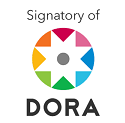Project-based learning for competency constructs historical interpretations
Abstract
The purpose of the research was to determine the influence of project-based learning in the development of the competence construct historical interpretations in the students of an educational institution in Julcán. This was applied research, with a pre-experimental design, quantitative approach, longitudinal cut and explanatory level. The sample consisted of 20 students. The technique was the survey and, the questionnaire was used as an instrument. The results revealed that, prior to the application of project-based learning, the competence to constructs historical interpretations was at a low level with 70%, medium with 15% and high with 15%. After its application, it obtained a low level of 10%, medium level of 20% and high level of 70% and a value lower than 0.05 (p = 0.00) in the Wilcoxon test. Therefore, it was concluded that the application of learning workshops based on projects developed the competence of constructing historical interpretations in students.
Downloads
References
Apaza, F., Cavero, S., y Travieso, D. (2022). Aprendizaje Basado en Proyectos: su influencia en los resultados del estudiante. Varona. Revista Científico Metodológica, 3(75), 12–21. https://n9.cl/fqz4it
CEPAL. (2020). La educación en tiempos de la pandemia de COVID-19. https://n9.cl/oc77
Félix, N., Santa María, H., Córdova, U., Villanueva, R., y Sánchez, M. (2023). Investigative Competencies from the Approach of the National Project to 2036: Perspective of Peruvian Education. Revista de Gestão Social e Ambiental, 17(4), e03466. https://n9.cl/1ai84
Fernández, A., Gómez, B., Binjaku, K., y Meçe, E. (2023). Digital transformation initiatives in higher education institutions: A multivocal literature review. Education and information technologies, 28(10), 12351-12382. https://n9.cl/cjky1
Hossein, H., Trujillo, J., Gómez, M., Hossein, H., y Campos, A. (2021). Analysis of the use and integration of the flipped learning model, project-based learning, and gamification methodologies by secondary school mathematics teachers. Sustainability, 13(5), 2606, 1-18. https://n9.cl/djpbz
Isea, J., Álvarez, G., Molina, T., y Romero, A. (2025). Estrategias para el desarrollo de competencias en Educación Superior. Revista Conrado, 21(103), e4345, 1-9. https://n9.cl/zjikp
Jääskä, E., Lehtinen, J., Kujala, J., y Kauppila, O. (2022). Game-based learning and students’ motivation in project management education. Project Leadership and Society, 3(1), 101–111. https://n9.cl/5ovpo
Krieglstein, F., Schneider, S., Gröninger, J., Beege, M., Nebel, S., Wesenberg, L., Suren, M., y Rey, G. D. (2023). Exploring the effects of content-related segmentations and metacognitive prompts on learning with whiteboard animations. Computers & Education, 1(9), 104–108. https://n9.cl/bk0m7
López, J., y Palacios, F. (2024). Effects of a project-based learning methodology on environmental awareness of secondary school students. International Journal of Instruction, 17(1), 1-22. https://n9.cl/gctm0
McLure, F., Tang, K., y Williams, P. (2022). What do integrated STEM projects look like in middle school and high school classrooms? A systematic literature review of empirical studies of iSTEM projects. International Journal of STEM Education, 9(1), 73, 1-15. https://n9.cl/dj3udi
Martínez, M. (2021). Aprendizaje basado en proyectos como estrategia de formación profesional. RIDE. Revista Iberoamericana para la Investigación y el Desarrollo Educativo, 12(23), 305. https://doi.org/10.23913/RIDE.V12I23.1093
Martínez, C. (2022). Developing 21st century teaching skills: A case study of teaching and learning through project-based curriculum. Cogent Education, 9(1), 2024936, 1-16. https://n9.cl/vz6xo
Martínez, M., Gómez, C., y Miralles, P. (2022). Estudio comparativo sobre la presencia del pensamiento histórico en los currículos educativos de diferentes países. Revista Electrónica Educare, 26(2), 350–368. https://n9.cl/5hx66
Moreno, V. (2020). Prácticas en la enseñanza de la escritura argumentativa académica. La estructura textual. Formación universitaria, 13(2), 12–21. https://n9.cl/tphpj9
Pande, M., y Bharathi, V. (2020). Theoretical foundations of design thinking – A constructivism learning approach to design thinking. Thinking Skills and Creativity, 3(6), 103–111. https://n9.cl/o3v1t
UNESCO. (2020). Sesión extraordinaria de la Reunión Mundial sobre la Educación, La educación después de la COVID-19: Declaración de la Reunión Mundial sobre la Educación 2020. https://n9.cl/nagn
Copyright (c) 2025 Jaime Fernando Luján-Villegas

This work is licensed under a Creative Commons Attribution-NonCommercial-ShareAlike 4.0 International License.
LICENCIA DE CONTENIDO
Creative Commons
Atribución-NoComercial-CompartirIgual 4.0 Internacional (CC BY-NC-SA 4.0)
Política propuesta para revistas que ofrecen acceso abierto
Aquellos autores/as que tengan publicaciones con esta revista, aceptan los términos siguientes:
Usted es libre de:
Compartir — copiar y redistribuir el material en cualquier medio o formato
Adaptar — remezclar, transformar y construir a partir del material
La licenciante no puede revocar estas libertades en tanto usted siga los términos de la licencia
Bajo los siguientes términos:
Atribución — Usted debe dar crédito de manera adecuada, brindar un enlace a la licencia, e indicar si se han realizado cambios. Puede hacerlo en cualquier forma razonable, pero no de forma tal que sugiera que usted o su uso tienen el apoyo de la licenciante.
NoComercial — Usted no puede hacer uso del material con propósitos comerciales.
CompartirIgual — Si remezcla, transforma o crea a partir del material, debe distribuir su contribución bajo la lamisma licencia del original.
No hay restricciones adicionales — No puede aplicar términos legales ni medidas tecnológicas que restrinjan legalmente a otras a hacer cualquier uso permitido por la licencia.
DERECHOS DE AUTOR Y PERMISO
La revista permite que los autores tengan los derechos de autor sin restricciones.
La revista permite que los autores conserven los derechos de publicación sin restricciones; y garantizan a la revista el derecho de ser la primera publicación del trabajo.


















